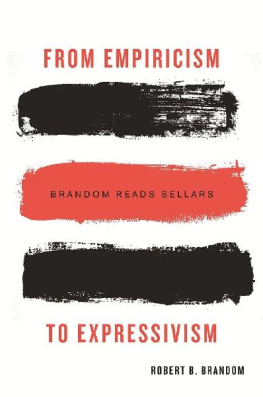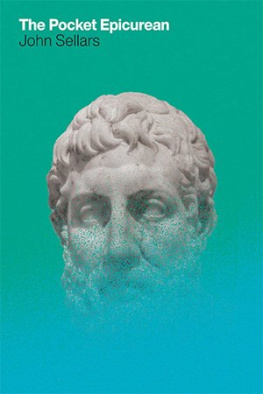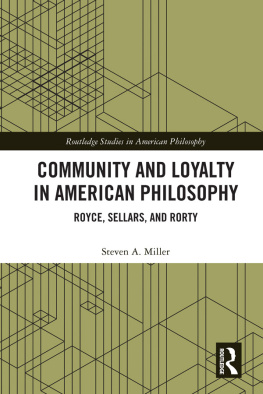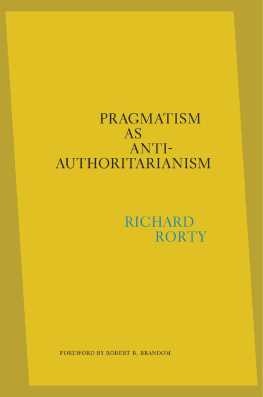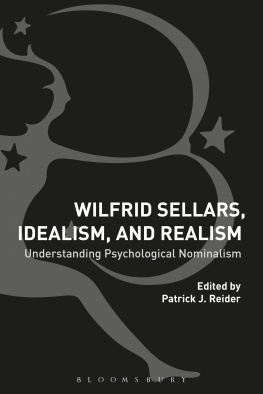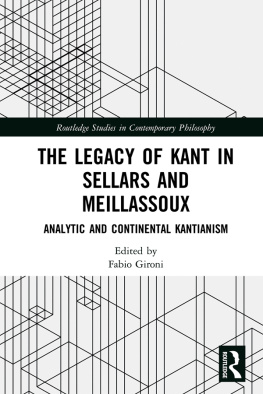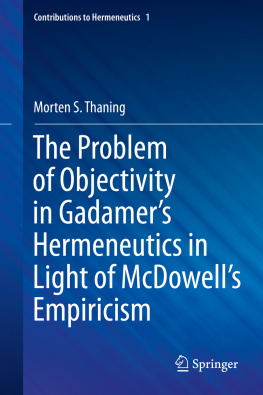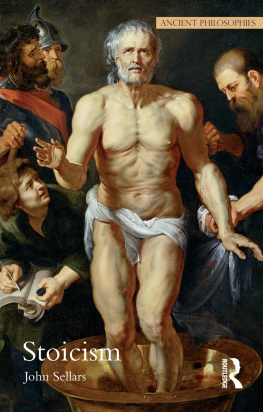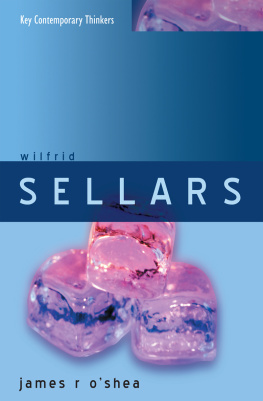From Empiricism to Expressivism
BRANDOM READS SELLARS
Robert B. Brandom

Harvard University Press
Cambridge, Massachusetts, and London, England
2015
Copyright 2015 by the President and Fellows of Harvard College All rights reserved Cover art: Courtesy Thinkstock Cover design: Graciela Galup The Library of Congress has catalogued the print edition of this book as follows:
Brandom, Robert.
From empiricism to expressivism : Brandom reads Sellars / Robert B. Brandom.
pages cm
Includes bibliographical references and index.
ISBN 978-0-674-18728-3 (alk. paper) 1. Sellars, Wilfrid. 2. Empiricism. 3. Pragmatism. 4. Expressivism (Ethics) I. Title.
B945.S444B73 2014
170.42dc23
2014008332
Even without this explicit dedication,
it would be clear that this one is for Wilfrid
Contents
EPMEmpiricism and the Philosophy of MindPPPWPure Pragmatics and Possible Worlds: The Early Essays of Wilfrid SellarsCDCMCounterfactuals, Dispositions, and the Causal ModalitiesTTCToward a Theory of the CategoriesRNWWRealism and the New Way of WordsGEGrammar and Existence: A Preface to OntologyNSNaming and SayingAEAbstract Entities
BSDBetween Saying and Doing1. Kant, Pragmatism, and the New Way of Words
Wilfrid Stalker Sellars (19121989) was the greatest American philosopher of the middle years of the twentieth century. The depth, originality, and range of his philosophical thought earn him a place alongside Charles Sanders Peirce, the greatest American philosopher of an earlier generation. From the point of view of contemporary conventional opinion among Anglophone philosophers, this assessment is somewhat eccentricthough not quite idiosyncratic. There is no question that other American philosophers of the time were more influential than Sellarsof those with a large overlap of interests, W. V. O. Quine (19082000) being preeminent among them. But one can also gauge the importance of a philosopher by the wealth of ideas, connections, and projects he bequeaths, by their power and fecundity, their capacity for further development, their potential for further illumination. Peirces scattered, fitful, frustrating writings remain a trove of mostly still-buried treasures. I find in Sellarss more systematic, sustained, if sometimes equally frustrating, writings correspondingly rich veins of philosophical ore.
It was obvious to his contemporaries that Sellars was not only an immensely talented philosopher, but one distinguished from his fellow analysts of the time both by his overtly systematic ambitions and by the self-consciously historical roots of his thought. Although his range of historical reference was very wide, the most important figure for Sellars always was Kant. The subtitle of his most systematic work, his 1966 John Locke lectures, is Variations on Kantian Themes. Being avowedly interested in and influenced by Kant was unusual among analytic philosophers during the period of Sellarss floruit in the late fifties and early sixties. Bertrand Russell and G. E. Moore had forged the fighting faith of analytic philosophy in opposition to the then-dominant British Idealism inspired by Hegel (the passion of their youth), which they properly saw as developing themes already implicit in Kants transcendental idealism. The recoil from Kant in Sellarss philosophical culture circle was not universal. Of those with most influence on Sellars, C. I. Lewis was a self-professed neo-Kantian, who did more than anyone else to keep the teaching of the first Critique alive in American graduate schools of philosophy. And Sellars was in an ideal position to see how deeply influenced by his neo-Kantian background Rudolf Carnap wasperhaps better situated in this regard than Carnap himself.
The efforts in the late sixties of John Rawls in America and Peter Strawson in Britain ensured that Kant would be recovered for later generations not only for the Anglophone canon but as a party to contemporary philosophical conversation. Sellarss development of Kantian ideas in application to issues of current philosophical interest has yet to have its hearing, however. In of this work, I talk about two major Kantian axes of Sellarss thought: his metalinguistic version of the Kantian idea of categories (pure concepts of the Understanding) and his scientific naturalism as a version of Kants distinction between phenomena and noumena. On the first topic, following out clues he finds in Carnap, he gives a metalinguistic reading of Kants thought that, besides concepts used in empirical description and explanation, there are also concepts whose expressive role it is to make explicit necessary features of the framework that makes empirical description and explanation possible. On the second topic, he brings down to earth Kants transcendental distinction between empirical appearances and noumenal reality by understanding it in terms of the distinction between what is expressible using the descriptive and explanatory resources of the manifest image of the common-sense lifeworld and what is expressible using the descriptive and explanatory resources of ideal natural science (natural science as it is at the Peircean end of inquiry, construed as a regulative ideal).
One of Kants big ideas is that what distinguishes judgments and intentional actions from the performances of nondiscursive creatures is that judgments and intentional actions are things we are in a distinctive sense responsible for, they are commitments of ours, they are exercises of authority on the part of their subjects. As such normative statuses, they are things our rational entitlement to which is always potentially at issue. That is, they come with a standing obligation to have reasons for them. Sellars takes over this idea, saying in one of the orienting passages of Empiricism and the Philosophy of Mind:
[In] characterizing an episode or a state as that of knowing, we are not giving an empirical description of that episode or state; we are placing it in the logical space of reasons, of justifying and being able to justify what one says.
Sellars draws from Kant the insight that epistemic, semantic, and intentional vocabulary is all fraught with ought, as he puts it. Understanding what we are doing when we offer empirical descriptions and explanations requires appreciating the normative character of the space of reasons in which those descriptions and explanations are situated.
Early on he sets the goal of clearing room for a view that goes beyond what he refers to as descriptivism or factualism, a view that sees all claims as empirical in a narrow sense.
[O]nce the tautology The world is described by descriptive concepts is freed from the idea that the business of all non-logical concepts is to describe, the way is clear to an ungrudging recognition that many expressions which empiricists have relegated to second-class citizenship in discourse are not inferior, just different.
His particular target in the essay from which this passage is drawn is alethic modal vocabulary: the language of subjunctive conditionals and of the expression of the laws of nature. The normative vocabulary whose expressive role is to make explicit the liability to demands for justification implicit in the application of concepts in claims to empirical knowledge and judgment generally equally fall within the scope of this dictum. Modal and normative vocabulary, together with ontologically categorizing vocabulary such as property, universal, and proposition are not for Sellars to be understood as in the first instance describing the empirical world. They rather serve the function I described above as categorial in Kants sense: making explicit features of the framework within which empirical description and explanation are possible.

